Azerbaijan preparing for Armenian genocide in Karabakh region: Armenia FM
Armenia says Azerbaijan is preparing an escalation against Yeravan via the use of an “aggressive rhetoric” aimed at undermining existing agreements between the two countries, claiming that Baku is preparing for genocide of Armenians in the Karabakh region.
In a statement, the Armenian Foreign Ministry warned that Baku is doing everything to make regional peace establishment impossible.
“Having violated basically all the points of the trilateral statement of November 9, 2020, the president of Azerbaijan is obstructing the process of opening of regional communications,” the statement said.
This comes after Azerbaijani Foreign Ministry spokesman Aykhan Hajizada laid the responsibility on Armenia's door on Wednesday and said that Yerevan “is not interested” in peace and stability in the region as it rejected a peace proposal that would include provisions ruling out Armenia's territorial claims in the Nagorno-Karabakh region.
“Azerbaijan not only keeps under occupation the sovereign territories of the Republic of Armenia which it illegally occupied on May 12 and November 17, 2021 and in September 2022, but also introduced the so-called "Western Azerbaijan" discourse and declares practically the entire territory of the Republic of Armenia as Azerbaijani land,” the statement said.
The speech of the President of Azerbaijan, Ilham Aliyev, delivered on March 16 during the summit of the Heads of State of the Organization of Turkic States (OTS), was a clear manifestation of territorial claims against the Republic of Armenia and preparation of another aggression.
“The assessment of the Ministry of Foreign Affairs of the Republic of Armenia is clear: with its aggressive discourse and actions Azerbaijan makes preparations for subjecting the Armenians of Nagorno-Karabakh to genocide and for a new aggression against Armenia,” the statement said.
In the end, the Armenian foreign ministry suggested launching international mechanisms for the prevention of genocides, sending an international fact-finding mission to the Lachin corridor and Nagorno-Karabakh, as well as directly condemning Azerbaijan's aggressive actions and policies.
On February 18, 2023, Azerbaijani President and Armenian Prime Minister, Nikol Pashinyan, held peace talks in Munich and following the negotiations, Aliyev said that the main issue was that the peace treaty between the two countries should be drawn up on the basis of international norms and principles, but the negotiations have been stalled so far.
The decades-long conflict between Armenia and Azerbaijan over Nagorno-Karabakh on the border between the two countries flared up again in September 2020, marking the worst escalation since the 1990s.
Karabakh is internationally recognized as part of Azerbaijan but has a primarily Armenian population that has resisted Azerbaijani rule since a separatist war there ended in 1994.
In 2020, the second Karabakh broke out, killing more than 6,500 people during a six-week conflict. The war ended with a Russian-brokered deal that saw Yerevan cede swathes of the Azerbaijani territory that it had been occupying for several decades.
Since December 2022, the Lachin Corridor — a road that runs through Azerbaijani territory and serves as the only link between Armenia and Nagorno-Karabakh — has been blocked by a group of people from Azerbaijan described by Baku as environmental activists protesting alleged illegal Armenian mining around the area.
Hezbollah attacks Israeli forces after Lebanese homes blown up
World leaders, states hail ICC arrest warrants for Netanyahu, Gallant
MP: US accountable for possible Israeli 'foolishness' to attack Iraq
VIDEO | Israeli policies strangle Palestinian agriculture, economy
Iran's president offers condolences to Pakistan over terrorist attack
Canada’s Yukon town council at standstill over refusing oath to King Charles
Yemen's Houthi calls for jihad to protect Palestine against Israel
VIDEO | Internal rifts within Israel


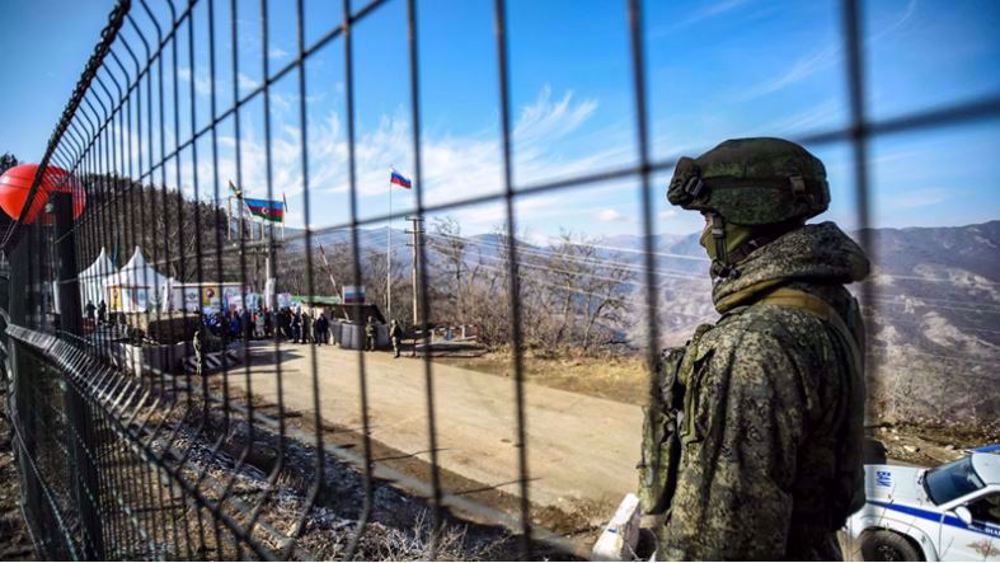
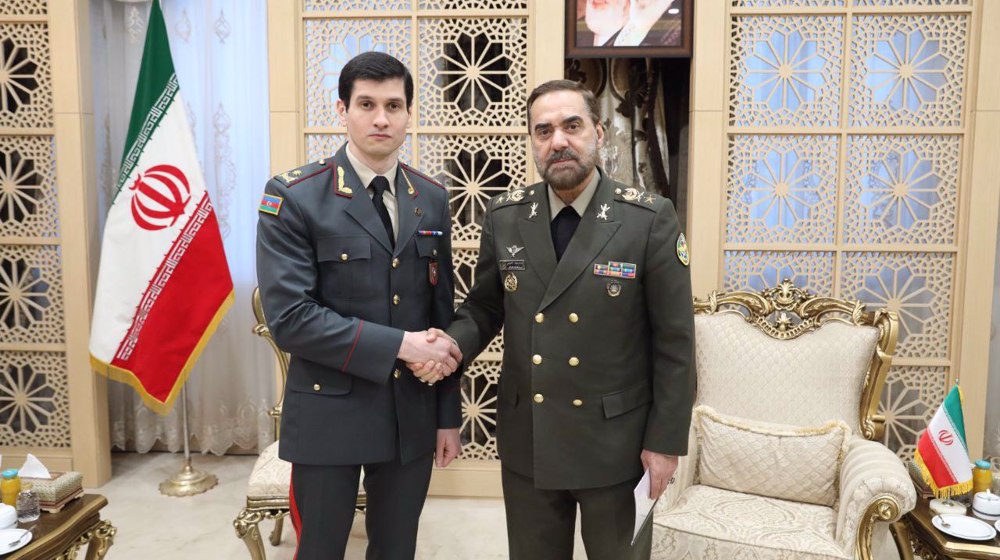





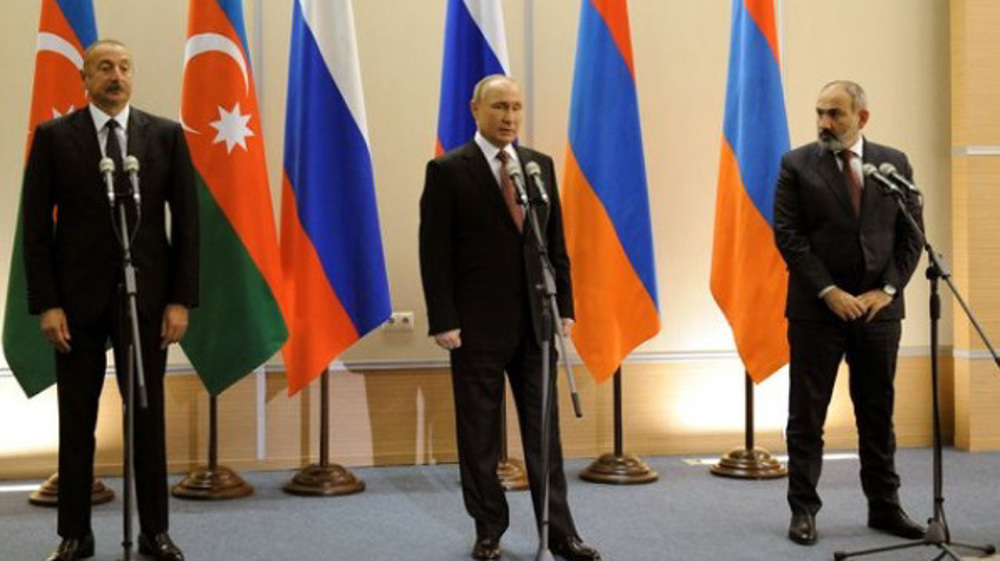
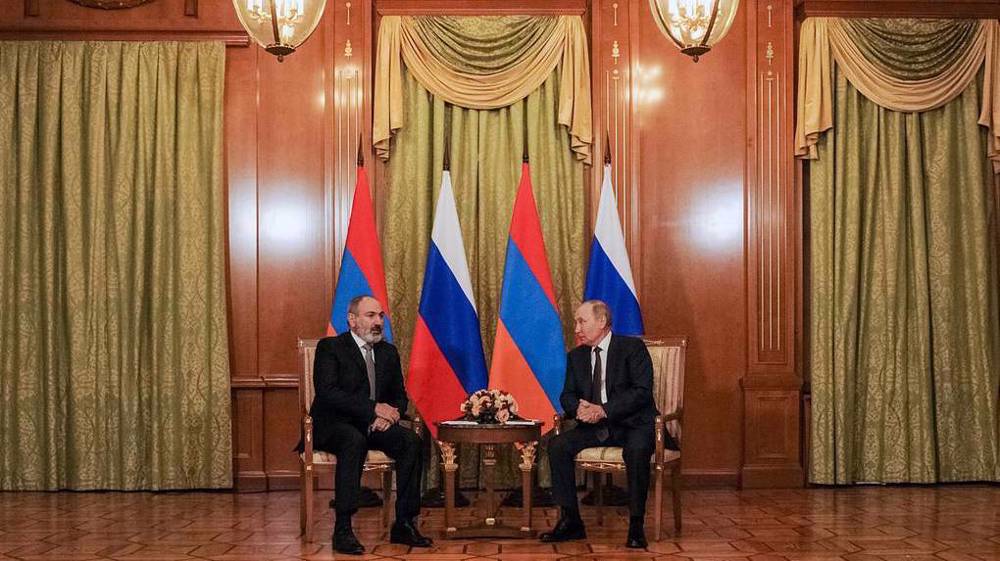
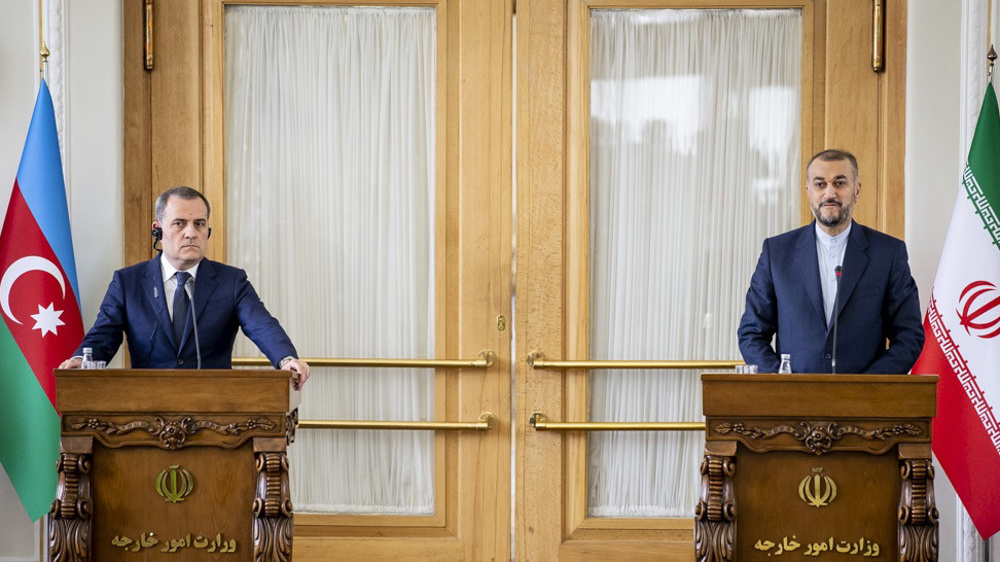
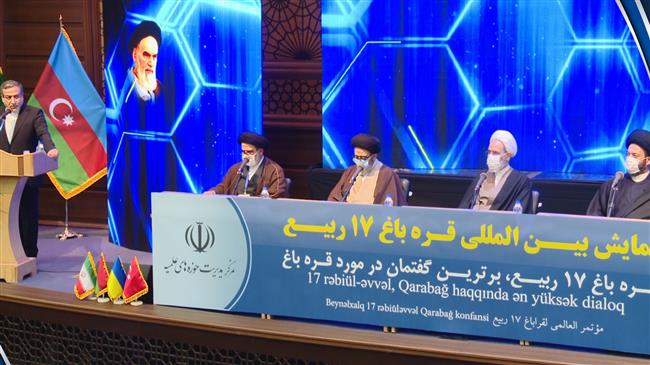

 This makes it easy to access the Press TV website
This makes it easy to access the Press TV website